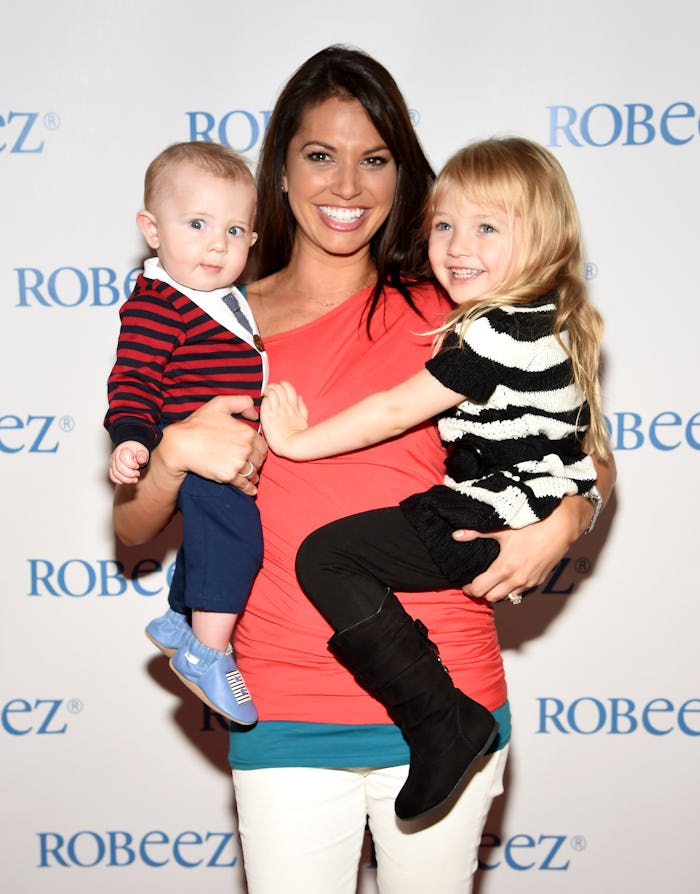Entertainment

Melissa Rycroft's Biggest Regret As A Mom Is A Common Mistake
When former Bachelorette Melissa Rycroft announced her pregnancy, fans of the franchise rejoiced with her. But in a recent interview with People, she shared that she has experienced her fair share of heartbreak in motherhood. Namely, Rycroft's biggest regret as a mom was attempting to apply the same parenting technique to all of her children and it was something that she believes made life a lot harder on her than necessary. Many parents make this same mistake, applying the same tried and true parenting methods to different children and not getting the desired results. But research suggests that individualized parenting for each child is the best way to go.
When speaking to People for the outlets series Celeb Parents Get Real, Rycroft admitted that she wishes that she had better understood the unique personalities of her three children — Cayson Jack, 2, and Beckett Thomas, 4, plus daughter Ava Grace, 7 — and the need to tailor her parenting techniques for each of them. “I took too long realizing that they all need to be parented differently,” she said. “I think if I had just taken a moment to be like, ‘Beckett needs something different and Cayson needs something different,’ then I could’ve saved myself a lot of frustration and heartbreak. I think I would’ve been a better parent.”
Rycroft's suspicion that her parenting could have been improved by individualized methods is supported by research conducted over the past few years. A 2011 study published in the Journal of Abnormal Child Psychology suggested that when parents tailor their parenting style to their child's personality, their child's risk of depression and anxiety risk are cut almost in half, Psychology Today reported. Additionally, mismatched parenting style and personalty seemed to lead to twice as many depression and anxiety symptoms.
Any parent with multiple children can tell you that they are often as different as night and day. So why do parents attempt to apply the same techniques to distinctly unique children? According to the Australian Institute of Family Studies, many aspects of parenting — such as supportive relationships and consistency — but that doesn't mean that children don't need variation. Specifically, the AIFS looked at two distinct types of children and their needs: shy kids and "feisty" kids.
The AIFS described shy, reticent children as "slow to warm up," cautious, and slower to adapt to change. However, once these children are comfortable in an environment, they can be sociable, friendly, and adventurous. The AIFS reported that these children are more likely to respond well to gentle discipline with encouragement instead of threats. Conversely, fearless children require consequences in their discipline.
For volatile or feisty children, parents should be assertive, patient, and firm, as well as remaining warm throughout discipline as these children are more likely to develop anger or aggression issues if punished harshly or violently. While these children may test parents' patience and often feel "hard to handle," remaining steady and constant in response to misbehavior is crucial when kids act out often.
As you can see, one-size-fits-all parenting is not viewed by the experts as ideal. And as tempting as it can be to find what works for you and stick with it as your family grows, parents have to adapt to their child's personality and needs as they parent them. Rycroft is certainly not alone in her misstep or slow learning curve, but by sharing her experience with People, she is giving others the opportunity to learn from her mistake. No parent is perfect, but knowing your child and seeking to best serve them is always the right choice.